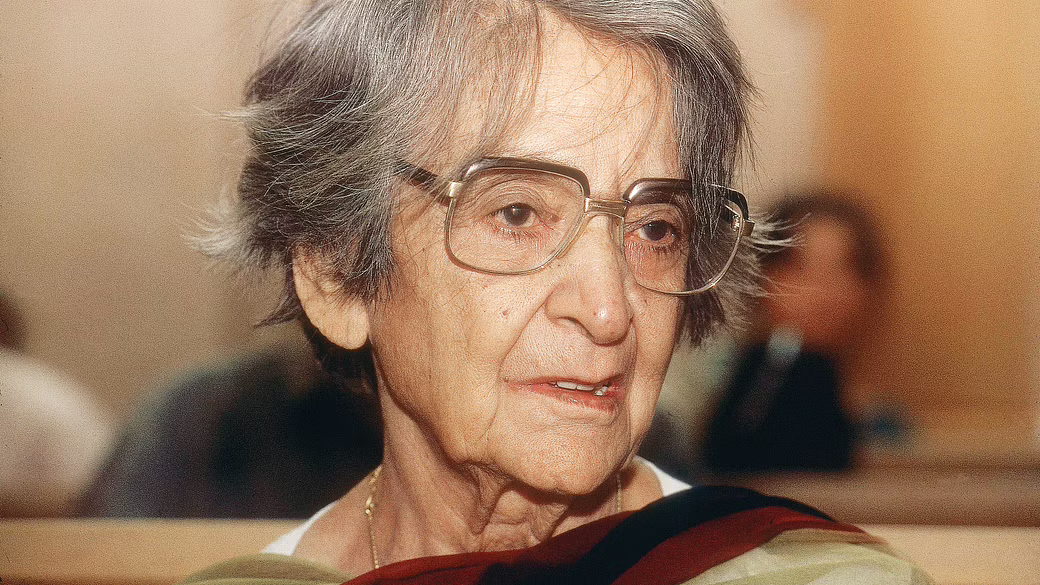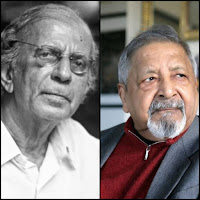WHEN THE AUTUMN CAME -An Analytical Exploration
Similarly, Here Poet Faiz wants to address the generations about some serious issues.
First of All, Let's explore Who is Faiz? and What he wants to express through his poem "When the Autumn came"?
Contents:
- WHO IS FAIZ AHMAD FAIZ?
- MYTHICAL BACKGROUND OF THE SEASON “AUTUMN”:
- WHAT DOES THE TITLE “AUTUMN” SYMBOLISE IN LIFE? :
- CONTEXT OF THE POEM:
- IMPACTS OF AUTUMN:
- AGONY OF THE BIRDS:
- POET’S PRAYER TO RESTORE THE BEAUTY:
- EVOLUTION OF HOPELESSNESS TO HOPE:
- ANALYZING “WHEN THE AUTUMN CAME” POEM USING MARXIST AND ECOCRITICAL APPROACH:
WHO IS FAIZ AHMAD FAIZ?
Faiz Ahmed
Faiz MBE NI (1911-1984) was a Pakistani poet and author in the Urdu language
in Pakistan. Belonging to a Punjabi family he was one of the most celebrated
writers of the Urdu language in Pakistan. Faiz was a Marxist and he received
the LENIN PEACE PRICE by the soviet union in 1962. His work remains influential
in Pakistan literature and arts. WHEN AUTUMN CAME is a multi-thematic poem
written -a revolution of Urdu linguist poems whose poems have been translated
into many languages of the world. Outside literature, he has been described as
"a man of wide experience" and has been a teacher, an army officer, a
journalist, a trade unionist and a
broadcaster. He is best known for Arabic literature. His literary movements are
the progressive writer's movement and the communist party of Pakistan. Faiz
went to serve in the British Indian army. After Pakistan's independence, Faiz
became the editor of THE PAKISTAN TIMES and a leading member of the communist
party.
NOTABLE WORKS:
.Subh-e-Azadi, Naqsh-e-Farhadi
, Dast-e-Sabah Zindan-Nama.
NOTABLE AWARDS:
.Nigar
awards(1953)
.Lenin
peace prize (1962)
.HRC Peace
prize
.Nishan-e-Imtiaz(1990)
.Avicenna
prize(2006)
.Member of the order of the British Empire (MBE, 945).
Now we move on to his Poem "When the Autumn came",
This is the way that autumn came to the trees:
it stripped them down to the skin,
left their ebony bodies naked.
It shook out their hearts, the yellow leaves,
scattered them over the ground.
Anyone could trample them out of shape
undisturbed by a single moan of protest.
The birds that herald dreamswere exiled from their song,each voice tore out of its throat.⁴They dropped into the dusteven before the hunter strung his bow.Oh, God of May has mercy.Bless these withered bodieswith the passion of your resurrection;make their dead veins flow with blood again.Give some tree the gift of green again.Let one bird sing."
There is a
mythical background of the existence of different kinds of seasons. Likewise, For Autumn Season was a
story about Hades and Persephone.
Persephone is the goddess of fertility. Hades Makes off with Persephone into the underworld and although her return was accepted by all, she has already eaten the fruit in the underworld and this means she is not fully going back to the earth, the land of the living.
WHAT DOES THE TITLE “AUTUMN”
SYMBOLISE IN LIFE? :
Life is filled with mixed emotions. We should face everything. We go through the path of both ups and downs, victories and failures, high and lows, happiness and sadness. These things make us whole and give us a reason to live. Likewise, nature also lets people experience different phases of seasons. One of the seasons is autumn; it always comes after the summer. Poets usually connect their ideas of hopelessness, sadness, and darkness to autumn.
Autumn is not as refreshing as spring. The colours of the leaves turned from green to yellowish red. It symbolically refers to the richness of nature that turns into the loss of fertility. But it also represents the harvest, ripening and fullness. Like every coin has two sides, autumn also has the same.
CONTEXT OF THE POEM:
IMPACTS OF AUTUMN:
In this
poem, the poet opens his first stanza by describing the unpleasant effect of
nature when autumn approaches the trees. He states that the season makes the
trees Shed their leaves on the ground and it reincarnates into different shapes
when people start to press the leaves by their feet on the scattered spread of
the leaves. When the trees are not spotted with the leaves off. It was covered
less.
AGONY OF THE BIRDS:
He states how the season of autumn affects birds. The poet states the agony of a bird which was once sheltered in the trees. But now it's unable to build its nest. Eventually, it pushes the birds to vacate the place once it was their only home. And also the poet says that even human beings are deprived of the voices of the birds. They are not fortunate enough to hear the chirping of the birds.
POET’S PRAYER TO RESTORE THE BEAUTY:
EVOLUTION OF
HOPELESSNESS TO HOPE:
The poem
ends with a positive note for a hopeful future.
"Give some tree the gift of green again"
He states the word "green" refers to prosperity, wealth, richness, glory, regeneration, and happiness.
"Let one bird sing"
 |
ANALYSING “WHEN THE AUTUMN CAME” POEM USING MARXIST AND ECOCRITICAL APPROACH:
This poem is multifaceted in terms of themes and its context. It can be viewed as a " Political poem" as Naomi Lazard the translator of this poem mentioned in the book "The True Subject". The poem highlights the traumatic tragedies experienced by the lower class.
A reader
can quickly recognize it through clear symbols and imageries. From this
viewpoint, The poem can be viewed through a Marxist lens.
Faiz was highly influenced by Marxist principles and He also served in the communist party. In the following lines, we can resonate with the angst of Lower-class people who were represented as "Leaves" and "The Autumn" symbolizes the Upper-Class people.
it stripped them down to the skin, "
left their ebony bodies naked."
The diction "stripped" denotes the tortures imposed on the working class and the "ebony bodies naked" implies the resultant condition of the untiring work burden laid down on them.
Furthermore,
this poem can also be perceived as a Poem about "partition".
Faiz was
himself a victim of Partition as he wrote an exclusive poem titled "Subh-e-Azadi". Coming to "When the autumn came " poem the second and
third stanza exposes the pathetic condition of revolutionary poets and writers
Who voiced the voiceless people through their literary works.
"The
birds that herald dreams
were exiled
from their song,
each voice
tore out of its throat."
Faiz mentioned the priceless service of the Military Savior, who died as a sacrifice. So, He begs the God of May to bless them and if possible resurrect them so, that they can receive their due honour and respect.
" Oh, God of May have mercy.
Bless these withered bodies.
Similarly, this poem can also be viewed under Eco's criticism lens since Faiz also raise environmental concerns in the second and third stanzas.
Assuming
the poem was written in the times of partition, as an obvious result, Huge masses of people were compelled to move into strange lands like nomads and on the other hand, the natural habitat of birds and animals was subjected to collapse due to Bombardment and War violence.
"The birds that herald dreams
were exiled from their song"
The word "exile" can be applied to both people and birds(nature) who were forced to migrate.
Similarly, Faiz calls for "Afforestation "
In the last stanza, the poet begs the Lord Of May to give the gift of green again. He wishes the planet Earth will be clothed with a green robe once again.
"Give some
tree the gift of green again."
We hope you had a great reading:)
Happy Learning!
For Further Reading and References:
Faiz's The True Subject (JSTOR Article,)














Comments
Post a Comment